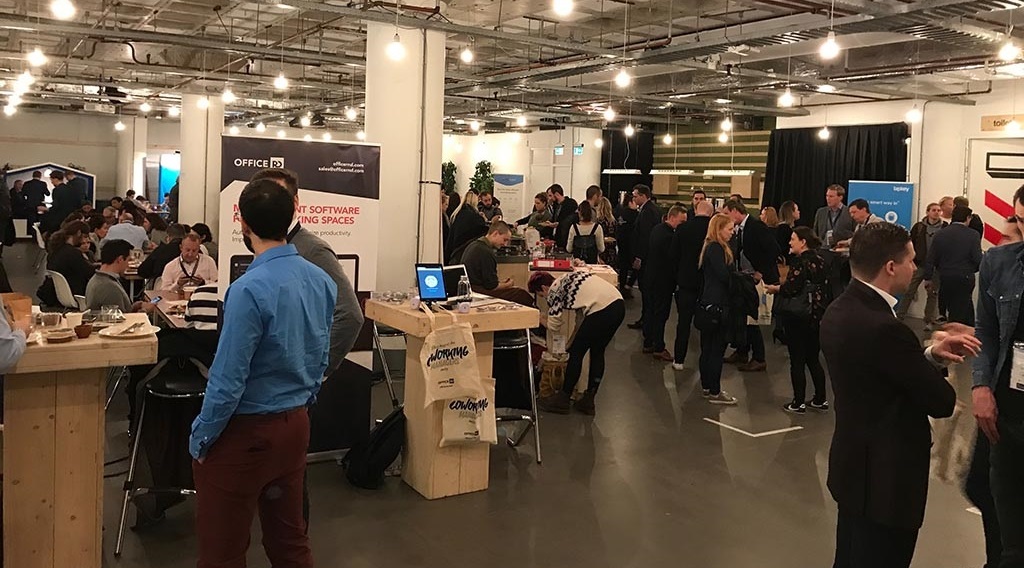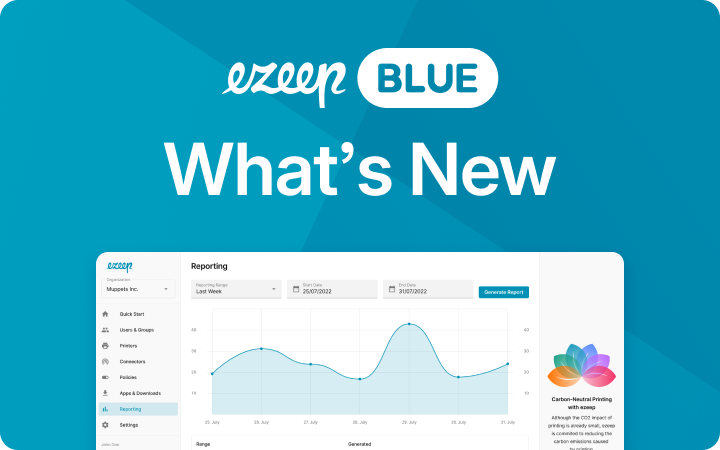Coworking Europe 2018: Do Coworking Spaces Need an IT Department?

Coworking Europe 2018- an important meeting place for operators of European coworking spaces.
When you think of coworking spaces, you instantly think of nice kitchens with espresso machines and maybe even beer taps rather than the IT infrastructure. But how do the IT requirements of coworking spaces differ from those of traditional companies, and should coworking space operators be thinking about hiring IT staff?
Of course, the IT requirements of a coworking space are very different from those of traditional businesses. But that doesn’t make them any less challenging. A coworking space is best compared to a company with a 100% BYOD strategy. To make matters even more complicated, users change frequently, and policy enforcement is virtually impossible. But that’s not all – while companies may still be concerned with recording employee time on the job, a coworking space’s IT regulates access to almost any resource, be it access to the building or the use of a meeting room.
However, IT staff are rarely found in coworking spaces. One of the reasons for this may be that there is now such a wide range of cloud services covering almost every aspect of a coworking space.
At Coworking Europe 2018 which took place in Amsterdam, around 500 participants, including many coworking space operators, met to exchange ideas and look for new solutions. A panel discussion focused on “Best ways to use technology to automate your space management, and focus on the hospitality and community”.
Participants included the presenter Katy Zühlke from St. Oberholz, Rick Voogt (Clay), Gilbert Hödl (Tapkey), Stefan Scheuerle (Sensorberg), Saurabh Mohal (Néxudus), Jakob Dalhoff (MatchOffice) and Christoph Hammer (ezeep). The participants in the panel discussion showed a good selection of what was on offer. While Sensorberg, Tapkey and Clay focus on access technology and giving coworking members access to spaces, offices and meeting rooms, Néxudus represented the group of space management vendors. Space management vendors essentially offer the coworking space’s operating system, which covers all the space’s administrative requirements.
ThinPrint Cloud Services, which grew from a former Berlin start-up and its product ezeep, takes care of the IT helpdesk nightmare of printing. Yes, printing is still happening in coworking spaces, and not just occasionally, especially as members who work partly at home and partly at a coworking space, will tend to use the printer in space than invest in hardware and maintenance for a printer at home. Printing has always been a problematic service but ezeep has moved the entire process to the cloud, allowing coworking members to use printing infrastructure without having to install any printer drivers. It doesn’t even matter whether they print from a PC, Mac or smartphone. And what is particularly useful is that ezeep is fully integrated with most coworking management systems, so members don’t receive separate invoices.
IT in the Cloud
So, there was a consensus in the panel that coworking spaces don’t actually need their own IT but can simply use tailor-made offers from the cloud. The coworking spaces get the specialist know-how from individual providers more or less automatically.
Of course, these offers are not free of charge and must be included in your expenses just as with water, rent and electricity. But a well-functioning infrastructure is also one of the most distinguishing features of a coworking space. Néxudus and ezeep, for example, are paving the way when it comes to simplification – integrating various services into one platform. Members created at Néxudus are automatically given access to the printer and the number of pages printed automatically appear on the invoice. Similarly, integration of access systems such as Tapkey, Clay and Sensorberg are also comparable. The bottom line is that the user of a coworking space only selects the appropriate plan and his IT environment configures itself virtually automatically.
Coworking and Data Protection
The panel also dealt with the issue of data protection, as coworking spaces manage a large amount of personal data. Coworking space operators should therefore train their staff on how to handle members’ data in a way that fully complies with data protection regulations. A workshop for members for example will not just be positively received, but also help them to better understand their own data protection measures.
Attention to data protection requirements is also required when selecting management services. Data processing agreements need to be concluded with the respective providers to ensure user data is fully protected.
Coworking Space IT Tech – Also for Traditional Businesses?
Can companies benefit too from coworking technologies? Yes, especially because in coworking spaces, the workplace of the future is tested on a daily basis. More dynamic use of space, cross-team communication and working in project-related groups is what many companies are striving for today. The ease with which IT infrastructure can be used in coworking spaces also has a motivating effect. Opening up infrastructure, for example for employees who work from home, can also increase productivity. Companies are already relocating entire departments to coworking spaces. The next step will be to make use of this experience and implement it in their own premises.
If you are interested in print management without the need for an IT department, take a look at the page Don´t be a printer guy.
